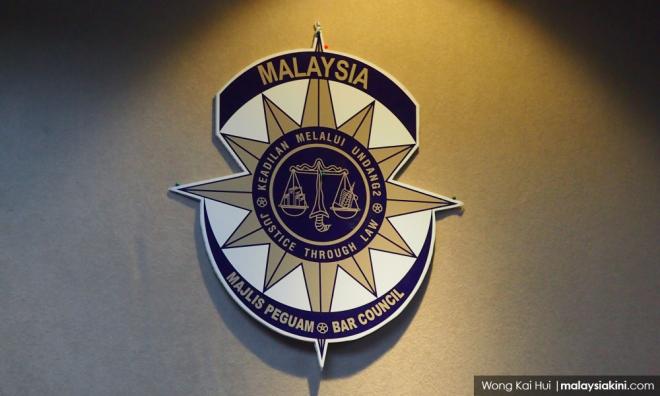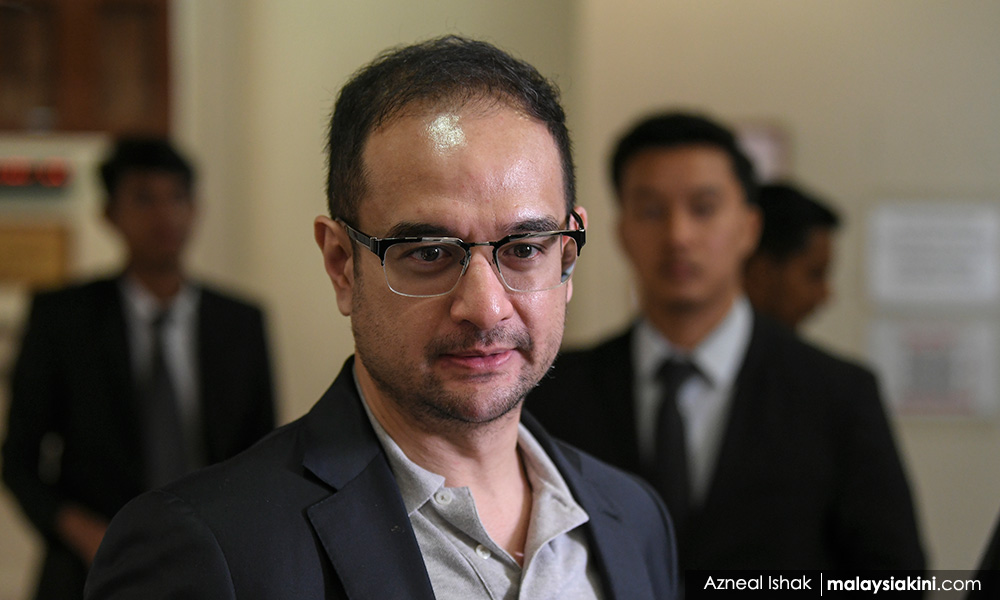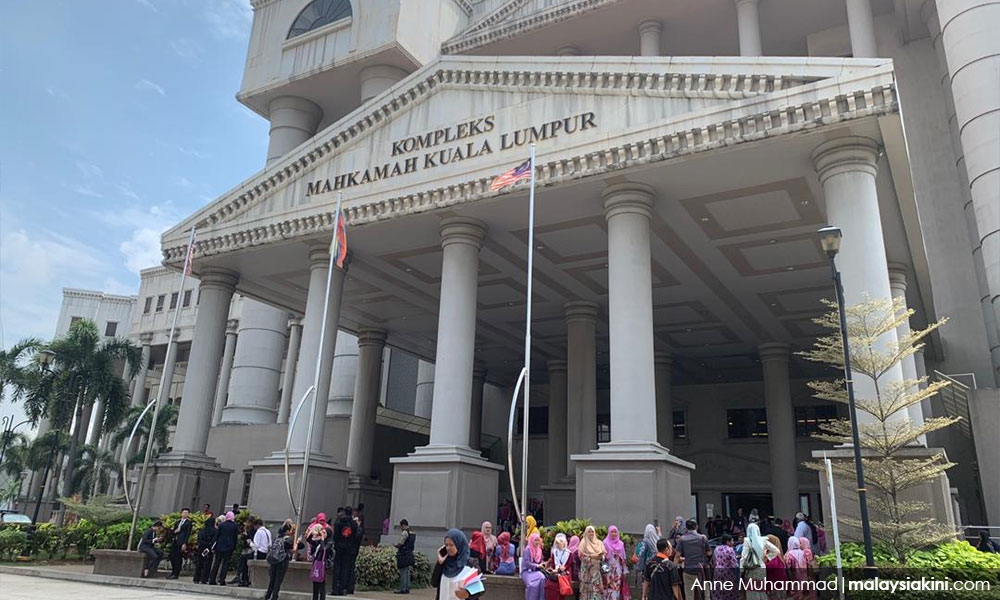
Several eminent lawyers, including five former Malaysian Bar presidents, have criticised current Malaysian Bar president Salim Bashir's statement on Riza Shahriz Abdul Aziz's case that they say is "uncharacteristic" of the Bar's fearless independence.
This is after Salim issued a "general statement" about the discharge not amounting to acquittal (DNAA) granted to Riza over his money laundering charges involving 1MDB funds. Riza is the step-son of former prime minister Najib Abdul Razak.
The lawyers said Salim did not address the core of the controversial deal with Riza and merely made general comments about court procedures. They added that the Bar doesn't need to make a statement if it has nothing meaningful to contribute.
Malaysiakini has reached out to Salim for a response.
The joint-statement was issued by lawyers J Armadas, Ng Kong Peng and former Malaysian Bar presidents Kuthubul Zaman Bukhari, Yeo Yang Poh, Ambiga Sreenevasan, Ragunath Kesavan and Lim Chee Wee.
The full statement is as follow:
We refer to the say-nothing-useful media statement by the Bar president, with the title “Legal Issues on the Granting of a Discharge Not Amounting to Acquittal of Riza Aziz”.
That statement, it pains us to say, is superficial and ill-conceived.
Most lawyers, and many enlightened members of the public, are fully aware that the public prosecutor has the discretion to proffer or not to proffer a charge, and also to withdraw a charge after it has been made in court.
This is not where the public thirst for insight lies.
This is not where the public thirst for insight lies.
What Malaysians want to know, and look hopefully to the Bar for guidance, is this - based on the information available, has that discretion, firstly, been properly, judiciously and fairly exercised, in the case of Riza Aziz (below); and, secondly, has it been seen to have been so exercised?

Making a general statement that such a discretion must be “dictated by wisdom, relevant consideration and driven by facts and public interest”; is not saying much at all.
It provides no insight into whether or not the exercise of discretion in this instance has met the required standard.
That statement curiously avoids these burning questions; uncharacteristic of a Bar admired for its fierce and fearless independence.
The Malaysian Bar should not make media statements when it has nothing useful to contribute; or when it is unwilling to take a clear and principled stand.
If the Bar president, in representing the Bar, is of the view that the discretion has been correctly exercised in this instance; he should say so clearly, and give cogent reasons.
If the Bar president is of the view that the discretion has not been correctly exercised; he should similarly state his stand unequivocally, supported with valid reasons.
If the Bar president feels that the available information is not yet adequate to enable him to form a reasoned opinion; then he should either have restrained himself from speaking, or else explained what additional information may be required before the Bar could come to a reasoned assessment.
That statement has done none of the above.
That statement is hollow, when it fails to address the most pressing questions bothering the Malaysian public; such as – whether it is right, and in the public interest, to withdraw serious charges just because partial reparation is promised or agreed upon post-felony; and whether all accused in a similar position will be treated likewise, and, if not, how this exercise of discretion will bring disrepute to justice, equality and fairness.
The public also wants to know whether it is usual or abnormal, for a DNAA to be requested and granted, “subject to terms and conditions” yet to be fulfilled by the accused.
Is that correct in law? Should the public prosecutor just take the word of such an accused, on his honour?
Quite apart from the issue of the impropriety of such a course of action; why couldn’t the request for DNAA be made only after all terms and conditions have been fulfilled by the accused? What is the rush?
While the Bar president is correct in saying that the public prosecutor has the discretion to withdraw a charge (which discretion must only be exercised justly and in the public interest); he has failed to address the issue of the role of the court to scrutinise such exercise of discretion.
That statement thus raises more troubling questions than it answers.
To many Malaysians, the recent exercise of prosecutorial discretion in the case of Riza Aziz is demonstrably wrong, and is against the public interest.

Most Malaysians understand that a serious crime remains punishable, even if the offender makes full reparation, let alone partial reparation.
Criminal jurisprudence allows reparation to acquire some relevance, if at all, only in relation to sentencing.
Most Malaysians also appreciate that, if an accused is allowed to escape full punishment under the law, by merely promising or making partial reparation; equal treatment must be given to all accused in a similar position.
That statement by the Bar president, which sweeps under the carpet many unanswered questions, is inconsistent with the resilient societal-leadership that the Malaysian Bar has selflessly provided for decades in the past, no matter how difficult circumstances had been from time to time, or how unpopular its views were to those in authority.
This is a cherished tradition and role of the Bar, and one of immense utility, which the Malaysian public has come to expect and rely upon when things are ill-done in our country.
We call upon all members of the Bar to lend their voice of strength in this matter of public importance; and to assure the Malaysian public that the Malaysian Bar has not lost its way. - Mkini


No comments:
Post a Comment
Note: Only a member of this blog may post a comment.